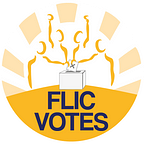More than ever, this is the time to support our community by voting Yes for Amendment 2
By Carissa Cabán-Alemán, M.D.
In the last few months, most of us have felt the impact of the pandemic in some way. As a community psychiatrist and university professor, I have seen how the consequences of this public health crisis can be harsher and more impactful on the lives of patients, students, and families that were already living under stress due to pre-existing medical illnesses, traumatic experiences, and social determinants of health such as educational inequity, unemployment or under-employment, poverty, racism, or social isolation/ exclusion. As so many persons face losing their jobs or being unable to maintain a job, more of us become aware of the struggles that people living under the poverty line or earning minimum wage have been facing since before the pandemic. Some families living in communities around us have been facing this kind of stress, instability, and pressure for years.
Multiple research studies demonstrate how having a low income or struggling with associated situations such as housing instability, limited access to education and healthcare, food insecurity and adverse early life experiences are social determinants of mental health that can cause a higher risk of psychiatric illness. Communities with limited resources are also disproportionately affected by COVID-19 and other factors that affect our health, such as issues caused by climate change (heatwaves, sea-level rise, flooding, air pollution, environmental disasters, etc.).
In fact, according to a recent study published in the Journal of Epidemiology and Community Health, the effect of a $1 increase to the minimum wage accounted for a 3.4% to 5.9% decline in the suicide rate among adults aged 18–64 years with a high school education or less. Collectively, this figure suggests about 1,059 fewer suicides per year (https://jech.bmj.com/content/74/3/219).
When these risks are prevalent, some common symptoms and health risks behaviors that can occur are sadness, isolation, insomnia, crying spells, distraction, panic attacks, irritability, anger, interpersonal conflict, family distress, disrupted work/life balance, as well as higher rates of substance use, depression, anxiety disorders, and complex grief. When communities around us develop such symptoms or disorders, we all lose. Our social environment becomes less positive and productive, with more people who do not work as well nor for as long as they could if they were healthy. This makes stress more prevalent, particularly in urban areas. Living in environments of high stress and negativity affects our children and adolescents tremendously, posing as a threat to their wellness and emotional development.
Floridians living paycheck to paycheck are having significant difficulties providing for their own families, often in more than one or two jobs, while they contribute to major Florida industries such as hospitality, tourism, fast-food, amusement, agriculture, and retail. The best example of why workers earning minimum wage need a salary increase is this pandemic. We have thousands of essential workers who had no option but to show up to work. However, while they were exposing themselves to COVID and its added risks and consequences, many of them were not able to make ends meet — an additional burden that is still taking a toll on the emotional wellbeing and mental health of many of them and those around them.
As a community psychiatrist, part of my duty is to support public policies that can help these community members have a decent living wage, which can lead to less stress and more quality of life for them and the communities where they live, work and interact. Furthermore, lessening the impact of social determinants of mental health such as poverty can lower the prevalence and incidence of psychiatric disorders in our state, which ranked at the bottom among all states in per-person spending for mental health services during 2019.
As a clinician and Florida citizen, I want a society in which my patients, family, and friends can have enough resources and opportunities to thrive and live a dignified life. This November, we have a chance to affect change that could potentially ameliorate the financial status of so many persons in our communities that work under minimum wage and have been hit hard by the pandemic. By voting YES on Amendment 2 to raise our state’s minimum wage to fifteen dollars per hour over the next few years, we can lessen the economic strain on those families and help create a healthier society with more quality of life and better mental health for all Floridians.
Dr. Carissa Cabán-Alemán is a Public Psychiatry Fellowship alumni and currently works as an Assistant Professor in a Floridian university. This op-ed is not an endorsement by her employer and should not be construed as such.
